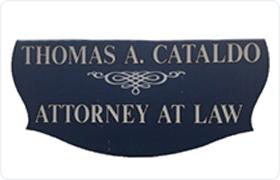 Netcong DUI-DWI Lawyers, New Jersey
Netcong DUI-DWI Lawyers, New Jersey
Sponsored Law Firm
-
 x
x

Click For More Info:
-
Thomas A. Cataldo, Attorney at Law
52 South Street Morristown, NJ 07960» view mapCriminal Defense Law Tip The Scales In Your Favor!
Thomas A. Cataldo, Attorney at Law has the legal experience you need at affordable rates that can't be beat.
800-834-4291
Sponsored Lawyers
1-10 of 12 matches
Criminal, DUI-DWI, Juvenile Law
Blair R. Zwillman has over 40 years of experience with the criminal justice system. After serving as a Law Clerk to Superior Court Judge Joseph M. Thuring in Hudson County, he became a Deputy Attorney General in the Division of Criminal Justice, a section of the New Jersey Attorney General's Office. There he prosecuted cases. In 1979, he left state service and began the private practice of criminal law, with his primary goal to assist and defend those charged with a crime. Mr. Zwillman is well regarded by his peers and is a frequent contributor to legal publications. He has successfully defended those charged with both white-collar crimes and all other crimes. His practice includes federal court matters nationwide, New Jersey state matters, public agency cases, and municipal case matters. He also handles licensing issues for doctors, dentists, and other professionals before state licensing boards.
(more)Personal Injury, DUI-DWI, Employment, Real Estate, Traffic
At Franzblau Dratch, P.C. we provide our clients with legal services in a comprehensive, yet cost effective manner, while at the same time reflecting and pursuing only the highest legal and ethical standards. While large enough to offer our clients a wealth of diverse experience and skill, Franzblau Dratch's goal is to provide close, hands on, attention to every client and matter entrusted to our care.
(more)



 Thomas Cataldo Morristown, NJ
Thomas Cataldo Morristown, NJ Practice AreasExpertise
Practice AreasExpertise


